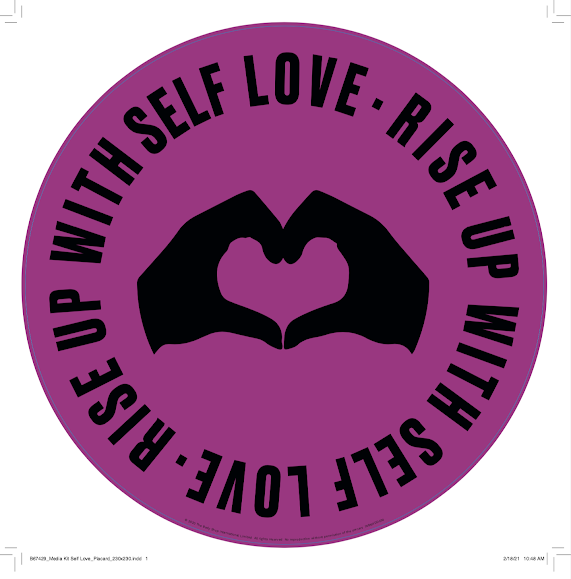As an activist brand, The Body Shop’s mission is to fight for a fairer and more beautiful world. To create a positive change in the world, we must start by creating a positive change within. In that way, The Body Shop calls for people around the world to rise with self-love, especially in a society that promotes self-doubt and insecurity. We believe that self-love goes beyond feeling good about yourself.
Self-love is about appreciating yourself, it’s about self-acceptance and giving yourself permission to grow into who you really are.
A first-of-its-kind global self-love* report by The Body Shop International found that South Africa scored seven points higher than the global average, ranking 5th out of 21 participating countries with a score of 60 out of 100. However, South African women scored three points lower (58) than South African men (61). The report identifies a self-love crisis for women around the world, with 1 in 2 women feeling more self-doubt than self-love, and 60 percent wishing they had more respect for themselves.
The Body Shop Global Self Love Index was commissioned to inform a long-term commitment from The Body Shop to always use its voice to build self-esteem. As a result, The Body Shop is launching a global movement called the “Self-Love Uprising”, with the aim to spread one million acts of self-love in one year, to create more love and positive change in the world.
South Korea, Saudi Arabia and France rank lowest for self-love, whereas Denmark, Australia, and the United States rank the highest. Designed by The Body Shop and leading market research firm Ipsos, the study ran between November and December 2020 with over 22,000 people in 21 different countries.
Further key findings of The Self Love Index in South Africa include:
There is a connection between social media usage and self-love scores, however in South Africa it is the inverse of the relationship seen in other countries. In South Africa, the greater the use of social media, the higher the self-love score is likely to be. Those who use social media for more than two hours a day have a Self-Love Index score of 60 out of 100, compared to a score of 58 among those who use social media 1-2 hours a day.
Men have a greater sense of self-love (61) than women (58).
Self-love increases with age, with those aged 65 years and over having the highest score (64). Those aged 35-44 years distort the trend with 35% of them in the lowest 25% of the Self-Love scores.
People who are single have lower self-love.
Those living in the Eastern region of South Africa have a slightly higher self-love score than other areas of the country.
People from minority groups are more likely to have a low self-love score, with an index of 58 compared to 62 among those not in minority groups, though the difference is not as great as seen in many other countries; 38% of those who are gay, lesbian or bisexual are in the lowest 25% of self-love scores.
Economic status impacts self-love, with 40% of those who are unemployed and 36% of those who are not financially comfortable being in the lowest 25% of self-love scores.
Where do you fall on the spectrum of self love? It's definitely something to reflect on.




No comments
Post a Comment
Hey! I would love to hear your thoughts :)